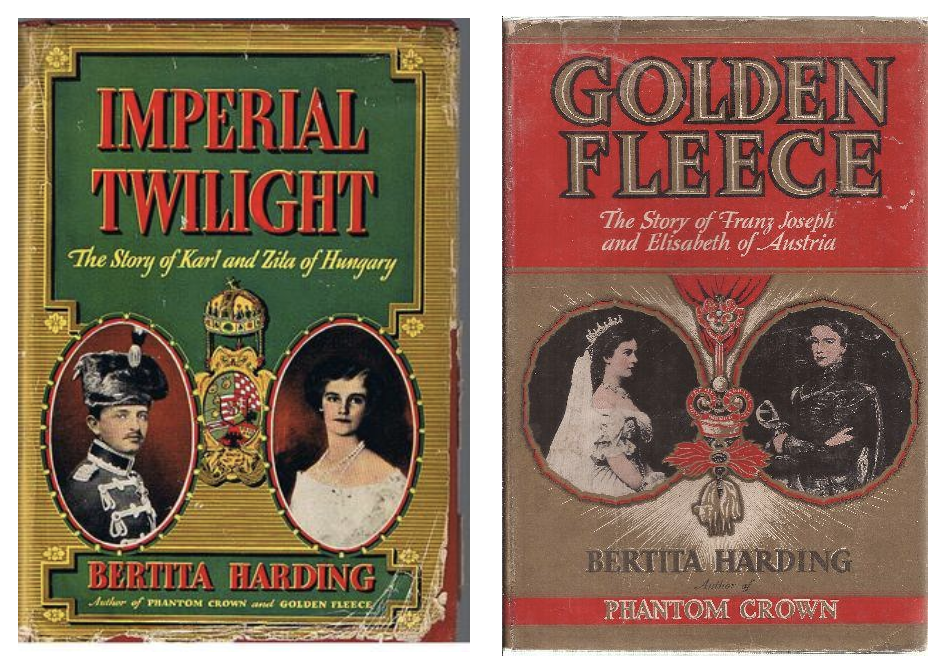(Nov. 1, 1902-Dec. 31, 1971). Bertita Carla Camille Leonarz de Harding was born in Hungary and moved with her family to Mexico City. As a child, she grew intrigued with the story of ill-fated Carlotta and Maximilian, emperor and empress of Mexico, interrogating former ladies-in-waiting for the royal couple about their fates. In 1909, Bertita and her family delivered jewels and insignia worn by the royal couple to Maximilian’s brother. Bertita’s brushes with royalty proved to be the inspiration for many of her works.

Bertita traveled to the U.S. to study at the University of Wisconsin, where she met her husband Jack Harding. The couple married in 1926 and moved to Indianapolis, where they participated in the Lambs Club and Athenaeum.
After their children were killed in an accident, Jack encouraged Bertita to write. In 1934, published her literary jewel, , penned in her Indianapolis apartment. With the success of Phantom Crown, Harding cemented her place in the Hoosier literary canon. The book she described as “manifest destiny” created a demand for Bertita’s unique perspective. She went on the U.S. lecture circuit, taking audiences in a pre-Google world on a vivid “tour” through Mexico and Europe, visiting “‘the small out-of-the-way, pieces of art and works of beauty to be found in such travel.’” By 1939, Warner Brothers adapted Harding’s book into a film called Juarez, starring Bette Davis. Eventually, the Hardings wrote Hollywood film scripts.
Bertita followed with (1949) and (1953). The praised her “unusual ability to recreate past scenes and make them live again with the verve and sparkle of fiction.” The noted that through Harding’s writing “Stiff, regal figures become understandable human beings. Royal mazes are unraveled.” The “adopted Hoosier” died in Mexico.

Help improve this entry
Contribute information, offer corrections, suggest images.
You can also recommend new entries related to this topic.